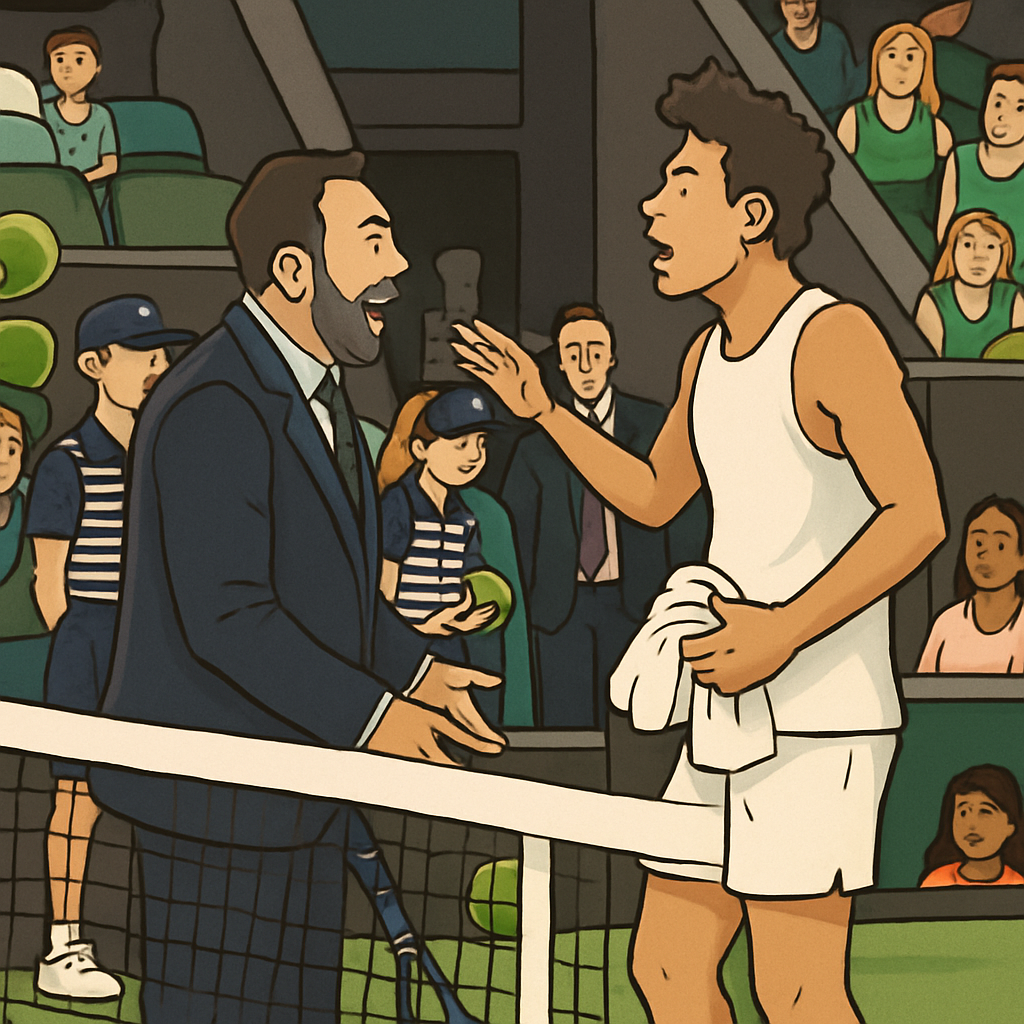LONDON — American rising star Ben Shelton was left fuming after his second-round Wimbledon clash against Australia’s Rinky Hijikata was suspended due to bad light—just as he was about to serve for the match. The 21-year-old, known for his explosive game and fiery on-court demeanor, had fought hard to take control of the contest but was denied the chance to close it out on Wednesday evening.
Shelton, seeded 14th at this year’s Championships, had battled through a tense four-set encounter on Court 18, with the match stretching into the fading daylight. After winning the third set in a tiebreak, he broke Hijikata’s serve late in the fourth and was leading 6-4, 4-6, 7-6(5), 6-5 (30-15) when the umpire halted play. The decision sparked visible frustration from Shelton, who argued with officials before reluctantly packing his bags.
A Controversial Call
The suspension came at a critical moment, with Shelton just two points away from victory. Tournament rules state that matches cannot continue once natural light falls below a certain threshold, but Shelton felt the decision was premature. "I could still see perfectly fine," he later told reporters. "It’s frustrating when you’re that close and the momentum is on your side. I just wanted to finish it."
Hijikata, meanwhile, appeared relieved by the stoppage. The Australian, ranked No. 72 in the world, had been under pressure in the final games and now gets a chance to regroup overnight. "It’s part of the game," Hijikata said. "Sometimes the conditions work in your favor, sometimes they don’t. I’ll come back fresh tomorrow and try to turn it around."
Shelton’s Wimbledon Struggles
This isn’t the first time Shelton has faced adversity at Wimbledon. Last year, he suffered a first-round exit in his debut at the All England Club. Known for his powerful serve and aggressive baseline play, Shelton has struggled to adapt his game to grass, a surface that requires more finesse and quick adjustments.
Key challenges Shelton has faced on grass:
- Difficulty sliding on the surface, which is crucial for defense
- Inconsistent serve placement compared to hard courts
- Slower adaptation to low bounces, which neutralize his power
Despite these hurdles, Shelton showed significant improvement in his match against Hijikata, particularly in his net play and patience during rallies. His frustration at the suspension underscores how much he wanted to prove himself on this stage.
What’s Next?
The match will resume on Thursday, with Shelton needing just two points to secure victory. However, the delay could shift momentum. Key factors to watch:
- Shelton’s first-serve percentage: He’ll need a strong start to avoid giving Hijikata hope.
- Hijikata’s return game: The Australian will likely come out aggressive, knowing he has nothing to lose.
- Crowd support: Shelton’s energy often feeds off the audience, which could play a role in the final moments.
Should Shelton advance, he would face either Denis Shapovalov or Daniel Altmaier in the third round—a winnable match given his current form.
Broader Implications
The incident has reignited debates about Wimbledon’s scheduling and light policies. Unlike other Grand Slams, Wimbledon does not have floodlights on all courts, leading to frequent delays. Players like Andy Murray have previously criticized the tournament for not modernizing its facilities.
"It’s 2024—we should have solutions for this," Shelton remarked after the match. "Fans pay to see a full match, and players deserve the chance to finish what they started."
Conclusion
Shelton’s frustration is understandable, but the young American must now regroup and refocus for Thursday’s conclusion. If he can maintain his composure, this could still be a breakthrough tournament for him at Wimbledon. For now, though, the wait continues—and so does the debate over how tennis’s oldest major handles its scheduling challenges.

